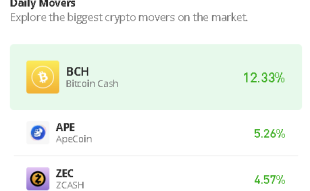Join Our Telegram channel to stay up to date on breaking news coverage
The Japanese National Tax Agency is adopting a more lenient approach towards taxing crypto assets for corporations involved in the emerging asset class within the country.
Japan’s New Crypto Tax Regulations Bring Relief to Businesses
According to Coinpost, a local media platform, Japan’s Tax Authority will exempt unrealised gains on company-issued cryptocurrencies, facilitating business for crypto-related companies.
Great news for web3.0 firms in Japan! This move by the Tax Agency will surely encourage innovation and growth in the crypto industry. 🚀:jp: #Web3 #CryptoTaxation
— Web3 Antivirus (@web3_antivirus) June 25, 2023
One appealing factor for high-growth companies is the availability of favourable crypto tax laws, considering the potential for a high Return on Investment (RoI) in virtual asset-related investments.
Currently, companies in Japan are subject to taxation on unrealised gains from holding cryptocurrencies at the end of the tax year. This practice has proven to be a costly burden for numerous firms. The report also highlights that the authorities have addressed the inclusion of a firm’s self-issued digital currency valuation in its market valuation.
Currently, tokens’ valuation will not be considered, allowing companies to ease the burden of including the market value of their native tokens in their overall valuation. Japan has been carefully deliberating its crypto tax policy for some time now, and this flexible approach towards the crypto ecosystem has the potential to position Japan as a prominent hub for digital assets.
Cryptocurrency taxation is a matter of global significance. Virtual Asset Service Providers (VASPs) can escape their tax responsibilities even in countries with explicit regulations governing this emerging ecosystem.
India has been leading in defining its tax obligations, with the current rate at approximately 28%. Similarly, tax authorities in the United States, Europe, and Australia are implementing new tracking systems to detect individuals or businesses attempting to evade taxes on their cryptocurrency trading or investments.
These measures are designed to ensure that tax obligations are met and that the growing crypto industry operates within the bounds of taxation laws.
Japanese Authorities Push Initiatives to Promote Blockchain and Crypto Sector
The tax change reflects the Japanese authorities’ initiatives to promote the blockchain and crypto sector in the country. Prime Minister Fumio Kishida is supporting the adoption of digital finance and blockchain in Japan to revive the economy, which he refers to as “new capitalism.”
However, cryptocurrency investors still face a maximum 55% income tax on crypto-related earnings exceeding 200,000 Japanese yen (US$1,400), categorized as “miscellaneous income.”
Last week, the Japan Virtual & Crypto Assets Exchange Association, the country’s crypto industry lobby group, requested regulators to relax crypto margin trading limits, as reported by Bloomberg.
In addition, Mitsubishi UFJ Financial Group Inc. (MUFG), Japan’s largest bank, is reportedly in discussions with several global cryptocurrency companies regarding the issuance of stablecoins. Earlier this month, MUFG revealed details about its Progmat Coin blockchain-based platform, designed to enable local banks to launch stablecoins and digital assets.
How Japan is Leading the Role in Shaping the Future of Blockchain
Over the past few years, Japan has faced challenges in the face of Silicon Valley and China’s growing dominance. Nevertheless, the emergence of blockchain gaming has opened up exciting possibilities, transforming the gaming experience and empowering players through immersive, economy-driven environments.
With its deep-rooted gaming heritage and tech-savvy culture, Japan is poised to capitalize on this opportunity as the global blockchain gaming market approaches a period of rapid expansion.
Japan’s impending dominance in the blockchain gaming arena rests on four integral pillars: its unique cultural ethos, a forward-thinking government, creative game developers, and the rapid evolution of a robust blockchain gaming ecosystem.
The cultural landscape of Japan, which is steeped in games like Tamagotchi and Pokemon that center around character-nurturing, perfectly aligns with the principles of blockchain gaming. Deeply ingrained in the Japanese psyche, these games have cultivated a natural affinity with blockchain games by emphasizing the enhancement of non-fungible tokens (NFTs) through gameplay.
Japan’s Progressive Regulatory Environment for Blockchain Technologies
Japan’s robust regulatory system gained attention when FTX, a cryptocurrency exchange giant, collapsed, and its Japanese unit was the only one to reimburse its clients.
This showcased the effectiveness of the country’s protective measures, which safeguarded investors and laid a strong foundation for the growth of blockchain technologies in Japan. The ruling Liberal Democratic Party’s proactive stance and METI’s sponsorship of Japan Blockchain Week further demonstrate the country’s commitment to fostering a thriving blockchain ecosystem.
Unlike many nations still grappling with establishing basic regulations for blockchain technologies, Japan has already advanced significantly in its regulatory development, setting itself apart from countries like the United States.
The country’s clear and precise regulatory frameworks for blockchain gaming serve as a blueprint for game companies, outlining what they can and cannot do. This instills confidence in businesses to embrace and expand into this dynamic space.
Japanese regulators are not merely revisiting existing rules but also redefining them, creating an ecosystem that supports blockchain businesses. They provide transparent tax and accounting guidelines, exercise strict control over licensed crypto-asset activities, and swiftly resolve regulatory ambiguities through a dedicated desk.
Through these initiatives, Japan solidifies its position as a key player in the blockchain sector, demonstrating how a progressive, well-regulated environment can drive innovation and growth in this cutting-edge field.
Related News
- Bank for International Settlements (BIS) Unveils Trailblazing CBDC Blueprint with Controlled Crypto Tech
- PEPE Coin Price Forecast: Will PEPE’s Recent Pump Lead to Further Gains? Expert Analysis
- Ethereum Price Forecast: Bullish Momentum Continues, Is $5,000 Within Reach?
Join Our Telegram channel to stay up to date on breaking news coverage


